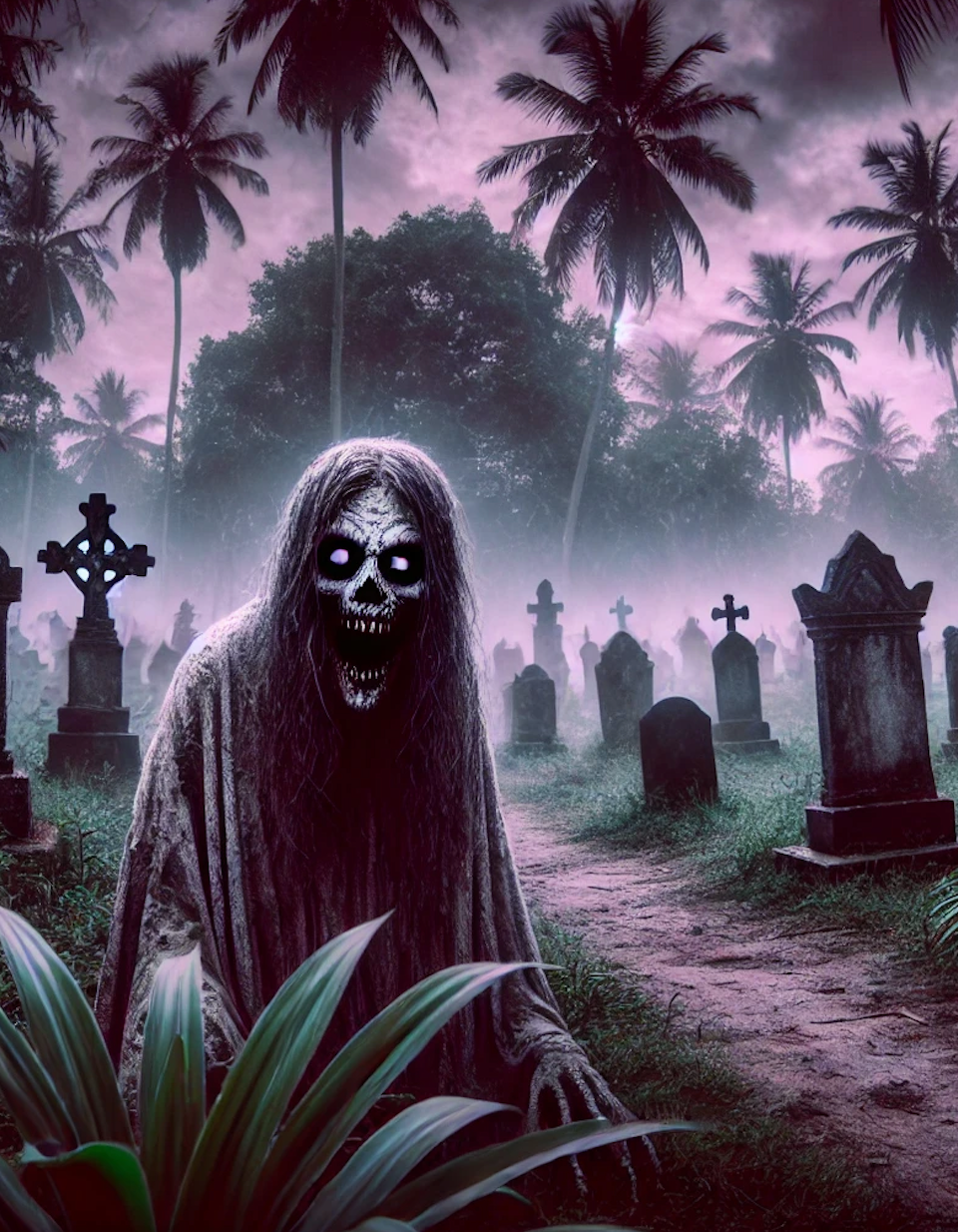
Barbados is famous for its beaches, vibrant culture, and rum traditions, but the island also has a darker side. Known as “duppies,” these spirits are part of Barbadian folklore and are thought to haunt specific places, people, and objects.
For generations, Bajans have passed down stories of these eerie spirits, rooted in history, culture, and African spiritual beliefs.
What is a Duppy?
In Barbadian folklore, a duppy is a spirit that lingers restlessly between the worlds of the living and the dead.
This belief originated from African spiritual practices brought to the Caribbean by enslaved people, who carried their customs and religious beliefs with them.
In African traditions, spirits and ancestors are considered part of everyday life, and duppies specifically represent spirits unable to pass peacefully into the afterlife.
Duppies often appear as shadowy figures or take on animal forms, such as cats or birds. While some duppies are seen as pranksters, others are believed to be malevolent, causing illness, bad luck, or haunting people at night.
The African Roots of Duppy Folklore
Duppy folklore comes from West African spiritual beliefs, especially among the Akan and Yoruba people, where spirits of the dead are closely tied to the living.
When enslaved Africans arrived in Barbados, they adapted their spiritual beliefs to the new environment, resulting in the complex duppy lore that exists today.
Over time, these beliefs mixed with European and Indigenous spiritual practices, creating a unique form of Caribbean folklore that is still present in Barbadian culture.
In West African tradition, spirits that die with unresolved issues or experience violent deaths may return as ghosts or restless spirits.
In Barbados, this belief continues, with many locals saying duppies appear when someone has died unexpectedly or with unfinished business.
Traits and Behaviours of Duppies
Duppies aren’t merely invisible entities; they are notorious for causing disturbances in people’s lives.
Many Bajans report feeling a heavy weight pressing down on them at night, often interpreted as a duppy “riding” them.
This sensation, sometimes called sleep paralysis, is thought to be a form of duppy visitation.
Locals believe that duppies can cause physical ailments, strange accidents, or mental distress.
In some cases, people feel a sudden chill, hear whispering, or see shadowy forms when a duppy is nearby.
Duppies can attach themselves to individuals, families, or even objects, lingering with the intent to cause mischief or harm.
The Chase Vault: Barbados’ Most Famous Duppy Tale
One of the most well-known duppy legends in Barbados centers on the Chase Vault in the Christ Church Parish Cemetery.
This story dates back to the early 19th century and involves a mysterious phenomenon that left locals and officials perplexed.
The Chase Vault was a family tomb that supposedly contained several coffins. However, each time the vault was opened to place a new body inside, the other coffins within it were found inexplicably moved from their original positions, despite the tomb being sealed shut.
This eerie occurrence happened multiple times, leading many to believe that restless spirits haunted the vault.
Eventually, the vault was abandoned, with the coffins left inside permanently undisturbed. To this day, the Chase Vault is a part of local legend, with many believing that the spirits of the Chase family members still haunt the area.
Protective Rituals and Practices
To ward off duppies, Barbadians have developed protective rituals and superstitions that continue to be observed today.
One common belief is that salt repels duppies, so many people place salt around doorways and windows to keep spirits at bay.
Another popular practice is scattering rice or sand outside the house, as it’s believed that a duppy must count each grain before entering, delaying its intrusion.
Sleeping with a Bible under the pillow is another common protection against duppies, as they are thought to be repelled by holy texts.
Some people also keep specific plants, such as aloe vera or a particular type of grass, near their doorways as a way to guard against duppies.
When encounters with duppies become too troublesome, some Bajans consult an “obeah man” (a traditional healer) who is believed to have the power to dispel spirits.
Obeah, a Caribbean spiritual practice, involves rituals, charms, and other methods to counteract or ward off harmful spirits.
Why Duppy Stories Endure in Barbados
Duppy stories aren’t merely ghost tales in Barbados; they’re an important part of cultural identity, rooted in history and tradition.
These stories connect generations, with each adding its own interpretations and updates.
For many Bajans, respect for duppy beliefs remains, even as modernity transforms everyday life.
They serve as cautionary tales and reminders of the island’s African heritage, emphasizing the significance of honoring one’s ancestors.
The folklore of duppies is passed down through family gatherings, late-night conversations, and cultural events, keeping the spirits alive in memory.
As long as these stories are told, duppies will remain part of Barbadian culture, a spectral link between the past and present.
This revised article focuses on documented aspects of Barbadian duppy folklore, the Chase Vault story, and widely accepted cultural beliefs.
It avoids fictional elements and relies instead on known practices and historical contexts. This approach would likely align with reader expectations for folklore grounded in cultural authenticity.